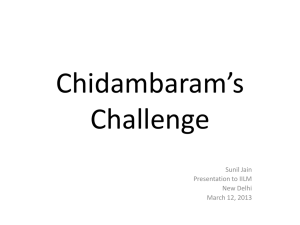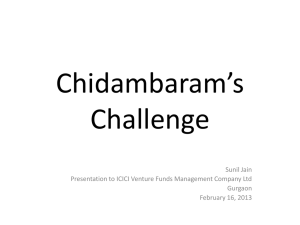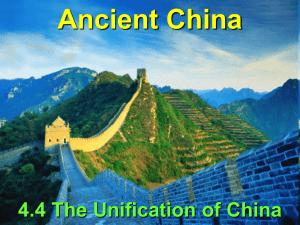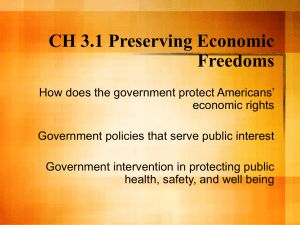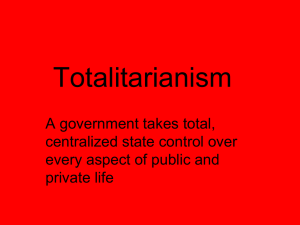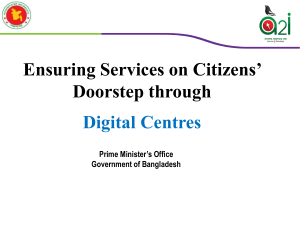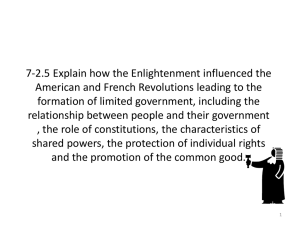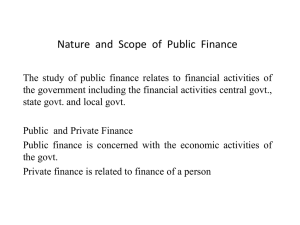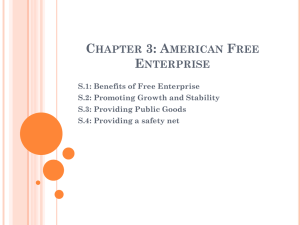handling cases befre tribunals & high courts
advertisement
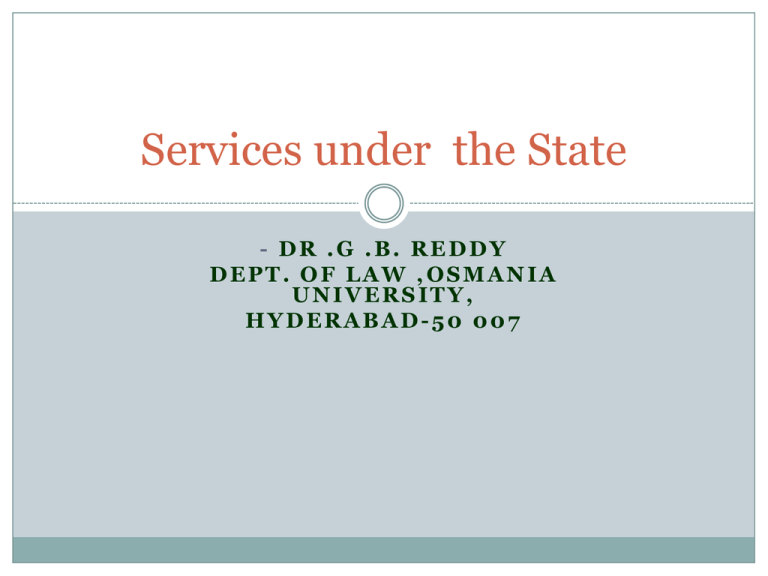
Services under the State - DR .G .B. REDDY DEPT. OF LAW ,OSMANIA UNIVERSITY, HYDERABAD-50 007 Services & their Role in Modern times Implementation of Government policies Progress of country Welfare of people Vital for Democracy Indispensable to Governance of country Law Governing Service Matters Constitution of India- Art.309-311 Service Rules framed by appropriate Government The Service Contracts (Standard Form) Judicial Precedents Services under Constitution Art.309 – Power of Parliament & State Legislatures to regulate recruitment and conditions of service in connection with affairs of Union and States Subject to provisions of Constitution – E.g. F.Rts,Art.311 etc Services under Constitution Art.310 – Doctrine of Pleasure Every member of Defence/ All India Service/Civil service or person holding civil post under Union-holds such post during pleasure of President Every member of Civil service of State or person holding civil post under State holds such post during pleasure of governor Exception – contractual appointments Art.310(2) Services Under Constitution Art.311 – Safeguards to Civil servants 1) No dismissal/removal from service by authority subordinate to appointing authority 2) No dismissal/removal/reduction in rank except after inquiry & giving reasonable opportunity of being heard in respect of charges ( not in respect of proposed penalty) Exceptions -1) dismissal/removal/reduction in rank on ground of conduct leading to conviction on criminal charge; or 2) satisfaction of authority for reasons to be recorded that it is not reasonably practicable to hold such enquiry; or 3) satisfaction of President/Governor that it is not expedient to hold such inquiry in interest of security of State Leading Cases and Settled Law Government Servants have no right to strike – T.R.Rangarajan v. Govt. of Tamil Nadu , AIR 2003 SC 3032 When enquiry officer is not disciplinary authority, delinquent employee has right to receive E.O.’s report, to defend him self before disciplinary authority. M.D.,ECIL v. B.Karunakar, (1993) 4 SCC 727 Leading Cases and Settled Law Termination of service amounts to punishment when Govt.servant had a right to post/rank under any rule of service /contract & than will be entitled to protection U/A 311 – [Purushotham Lal Thingra v. Union of India , AIR 1958 SC 36given higher post on officiating post – reverted back subsequently on gr.of unsatisfactory work-upheld by court] Leading Cases and Settled Law Suspension - not punishment [Sukbans Singh v.State of Punjab, AIR 1962 SC 1711] Suspended employee – entitled to normal subsistence allowance [State of Maharashtra v. Chandrabhan , AIR 1983 SC 803 (Rs.1/-p.m.-held to be unconstitutional)] Leading Cases and Settled Law Compulsory Retirement - simpliciter is not punishment – [State of Gujarath v.Umedbhai M.Patel AIR 2001 SC 1109 & Baikunta nath v.Chief Medical Officer , (1992) 2 SCC 299] Safeguards temporary not applicable to servants / probationers [State of Punjab v. Sukh Raj Bahadur AIR1968 SC 1089] Leading Cases and Settled Law Reasonable Opportunity need not be given – in cases of conviction u/s 332,IPC,Creating a riotous situation by CISF personnel becoming a security risk, etc – [Union of India v.Tulshiram Patel (1985) 3 SCC 398] Termination on ground of procuring job by producing false caste certificate – justified [Addl.G.M.(HR),BHEL Ltd,hyd. V. S.R.Burde, AIR 2007 SC 2048] Leading Cases and Settled Law All Entries in C.R.s (Whether poor,fair,good or very good)must be communicated to public servants (whether in civil,judicial,police or any other State service except Military)must be communicated to him within a reasonable period so that he can make a representation for its upgradation [Dev Dutt v. UoI,(2008) 8 SCC 725] Privileges of Administration Rule of Law-Right to Equality Unique position & role of Government as a litigant Justification – to protect larger public interest, to avoid litigation & to distinguish itself from private litigants Section 80,CPC - Notice Suits to be instituted by/against Central Govt- in the name of Union of India; By/against State Govt - in the name of the State [S.79] Mandatory Advance Notice of two months, before filing suit against government/public officer – issued to a Secretary to Central Govt/GM of railway/Chief secretary of J&K/Secretary to state Govt/District Collector [S.80(1)] Exception: In case of urgent/immediate relief against Government/Public Officer – waiver of notice with leave of court - no grant of interim relief with out reasonable opportunity to Govt.[S.80(2)] Exemption from Personal Appearance & Arrest in Suits Public Officer / Defendant – not liable to arrest nor his property to attachment otherwise than in execution of decree [S.81,CPC] Personal exemption from appearance by courtupon satisfaction that he cannot absent from duty without detriment to public service Execution of Decree against Government /Public Officer – only if it remains unsatisfied for three months from date of such decree [S.82,CPC] Other privileges in suits against Government Court’s duty to fix day of appearance/to answer to plaint by giving thr. proper channel & for issue of inotice to appear/answer on behalf of Govt.-maximum of extension – [O.27,R.5] Govt. to be joined as party in suits against public officer for damages/other relief for acts done in official capacity [O.27,R.5-A]vicarious liability of Employer Privilege to withhold documents Sec.123,IEA,1872 - no permission to give evidence derived from unpublished official records rel.to affairs of State except with permission from HoD Sec.124- similar provision relating to confidential communication Privilege-can be claimed in form of affidavit duly signed by concerned minister/ secretary Similar privileges u/s of RTI Act, 2005 Other privileges Longer period i.e., 30 years for Govt. suits u/a 112 of Limitation Act,1963 Duty of Court to assist parties to Govt.suits in arriving at settlement (O.27,R.5-B) No security from Govt / Public Officer in certain cases (O.27,R.8B)
